Is Federer the Greatest of All Time?
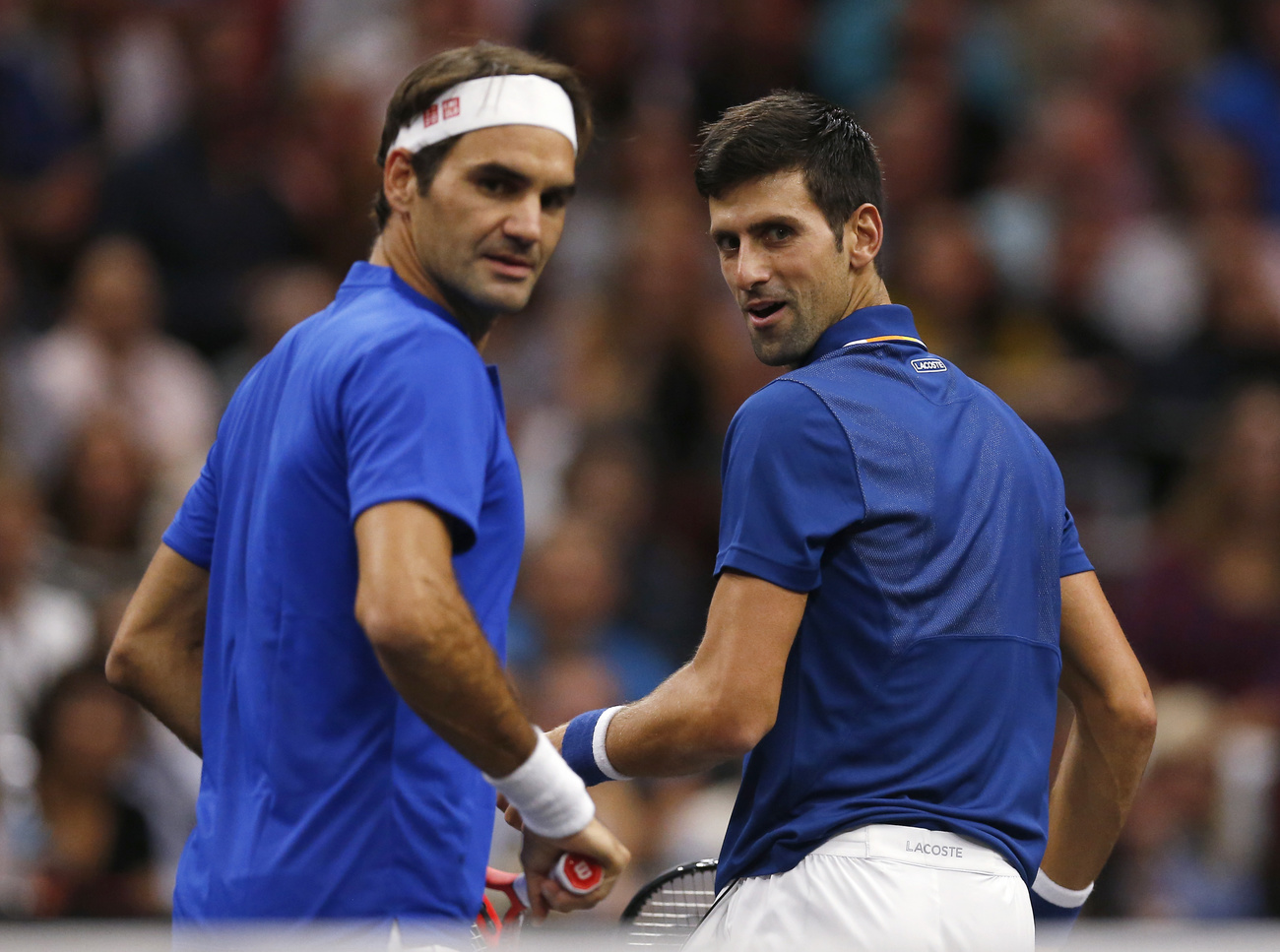
As Swiss tennis star Roger Federer turns 40 on Sunday, talk of his retirement, legacy and place among the tennis gods is increasing. Is he the GOAT, the Greatest of All Time? We want you to decide in a poll – after considering the cases of the five main (male) contenders.
Few things whip fans into a frenzy as much as debating who’s the best of the best in a particular sport. Marciano or Ali? Comăneci or Biles? Pelé or Maradona – or Messi or Ronaldo? Someone else?
In many respects it’s a daft exercise: advances in nutrition and technology – and general levels of professionalism – make it impossible and meaningless to compare sprinter Jesse Owens (1913-1980) with Usain Bolt (b.1986), or Swiss skiing legend Vreni Schneider (b.1964) with Lindsey Vonn (b.1984).
When it comes to tennis, inter-era comparisons are especially tough. Until 1968 and the start of the so-called Open Era, professionals were banned from competing in the four Grand Slam tournaments (Australian Open, French Open, Wimbledon, US Open). There was also the move away from wooden rackets in the early 1980s (Yannick Noah was the last male player to win a grand slam title with a wooden racket, in 1983).
But it’s fun! So here we go. For my money, the five players in the running for the GOAT vote are – in alphabetical order – Björn Borg, Novak Djokovic, Roger Federer, Rod Laver and Rafael Nadal. Yes, this list is obviously subjective – if you disagree, let me know below! And yes, how do you define “greatest”? The criterion that gets the most attention is the number of grand slam titles. I’ve also considered – to varying degrees – weeks spent at No.1 in the world rankings, other records, beauty of their game/watchability, natural talent and versatility.
Björn Borg
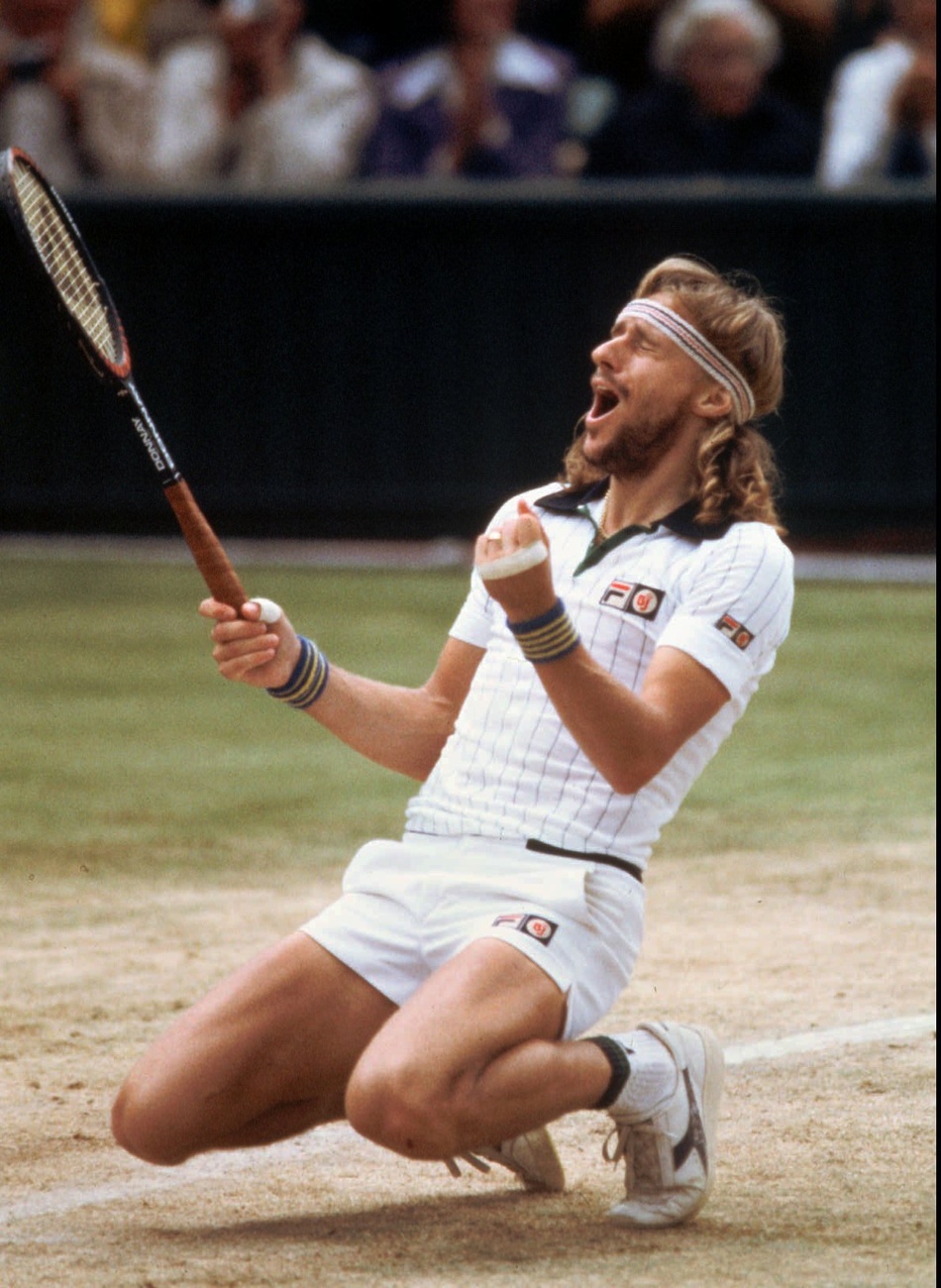
Borg (b. 1956 in Stockholm, Sweden) first played for his country in the Davis Cup aged 15 and by the time he retired, burnt out, ten years later he had amassed 11 grand slam titles – six on the grass of Wimbledon and five on the clay of Roland Garros (the French Open), reflecting a rare adaptability. He will also be remembered for his ice-cool temperament, for losing four US Open finals, for being one of the first top players to use a double-handed backhand and for being one of the last to stick with a wooden racket.
His records (all records in this article refer to the Open Era) include the best match-winning record at grand slams (89.2%) and the nine Masters tournaments (82.8%). He also has the best winning record against top-ten players in all tournaments (71.3%). He holds the record for the most consecutive matches won at one grand slam tournament (41 at Wimbledon) and the longest winning streak for all titles (ten) and all matches (49). Borg’s topspin groundstrokes and incredible fitness helped develop the style that dominates the game today. Who knows how many more titles he would have won had he not retired at 26?
Novak Djokovic
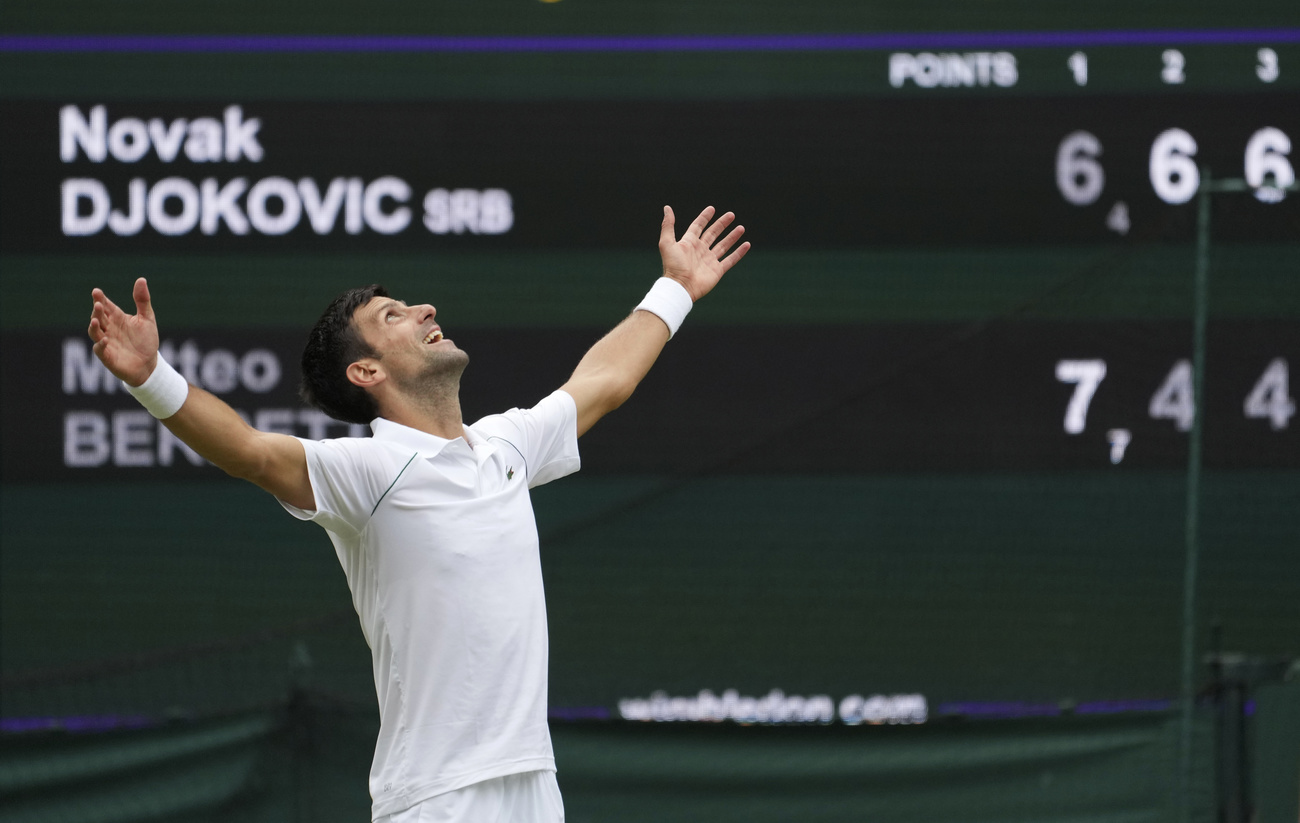
Djokovic (b.1987 in Belgrade, then Yugoslavia, now Serbia) shares the record of 20 grand slam singles titles with Federer and Nadal and most Masters titles with Nadal (36), but he holds many big records outright. These include the total number of weeks as world No.1 (331 and counting) and being the only player to have won all nine Masters tournaments (he’s won all of them at least twice). He’s been in at least six finals in each grand slam tournament, accrued the most points as world No.1 (16,950), and has the longest grand slam winning streak (30 matches). He has the best career match-winning record (83.3%) and has a winning head-to-head record against Federer and Nadal.
Was Djokovic’s level of tennis in 2016 the highest ever seen? Ultimate Tennis Statistics thinks so. Its Elo ratingExternal link (which takes into account the strength of opponents) has him just pipping the 1980-model Borg. And for what it’s worth, he also tops its GOAT listExternal link, just ahead of Federer. That said, he’s never won a grand slam title without losing a set, something Nadal has done four times and Federer twice. He is unloved by audiences and some critics complain about his boring, robotic tennis. But thanks to that metronomic consistency and peerless agility and self-belief, he is simply incredibly difficult to beat. More grand slam titles – and violent tantrums – seem certain.
Roger Federer
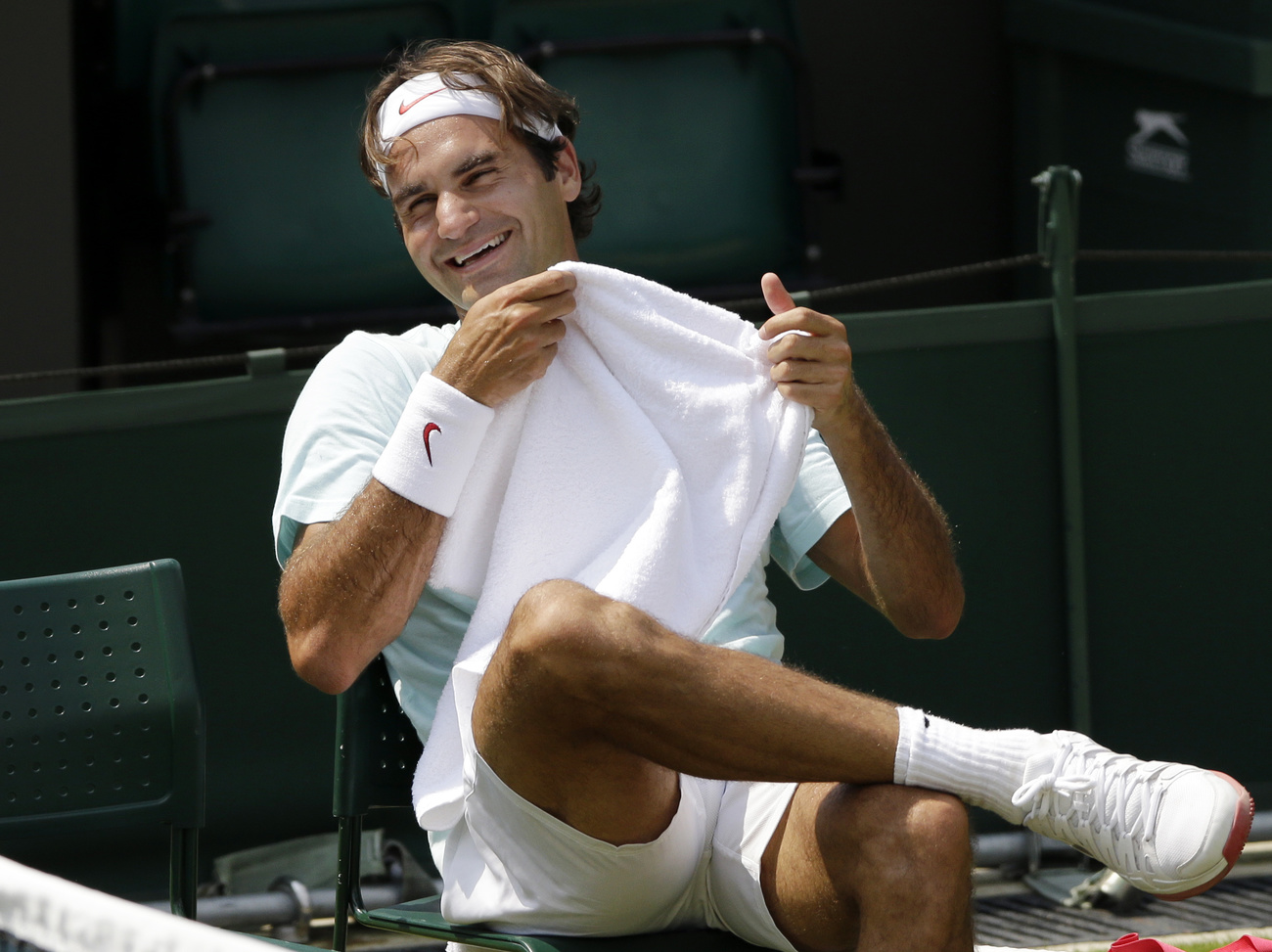
Federer (b. 1981 in Basel, Switzerland) shares the record of 20 grand slam singles titles with Djokovic and Nadal and holds the record for consecutive weeks at No. 1 (237). He holds many, many other records thanks to his consistency and longevity (he has spent a record 958 weeks and counting – more than 18 years – in the top ten, including being the oldest No.1, when he was 36). He has won the most grand slam matches (369) and reached the most finals (31). He has also won the end-of-season ATP Finals (featuring the year’s top eight players) a record six times and is the maestro of tiebreaks (winning 65.36%).
Some doubters claim that opponents in several of his earlier grand slam finals were weaker than opponents faced by Djokovic and Nadal, against both of whom Federer has a negative head-to-head record. (Losing to Djokovic at Wimbledon in 2019 despite having two championship points on his own serve must haunt him.) However, there’s no doubting his popularity, winning the ATPTour.com Fans’ FavouriteExternal linkevery year since 2003. He has also won the Laureus World Sports Award for Sportsman of the YearExternal link a record five times and the Stefan Edberg Sportsmanship Award 13 times.
On court, he is probably the most naturally talented player ever, with an effortless, graceful style. Simply put, he is beautiful to watch, and no one has a highlight reel like him. David Foster Wallace wrote in 2006External link of “Federer Moments”: “These are times, as you watch the young Swiss play, when the jaw drops and eyes protrude and sounds are made that bring spouses in from other rooms to see if you’re OK.”
Off court, advertisers are drawn to his clean and stylish image and global popularity. In a word, his class. As business magazine ForbesnotedExternal link, “Federer has a sponsor portfolio that is unmatched in the sports world. In [the ranking for] 2020, that made him the world’s highest-paid athlete for the first time.”
Rod Laver
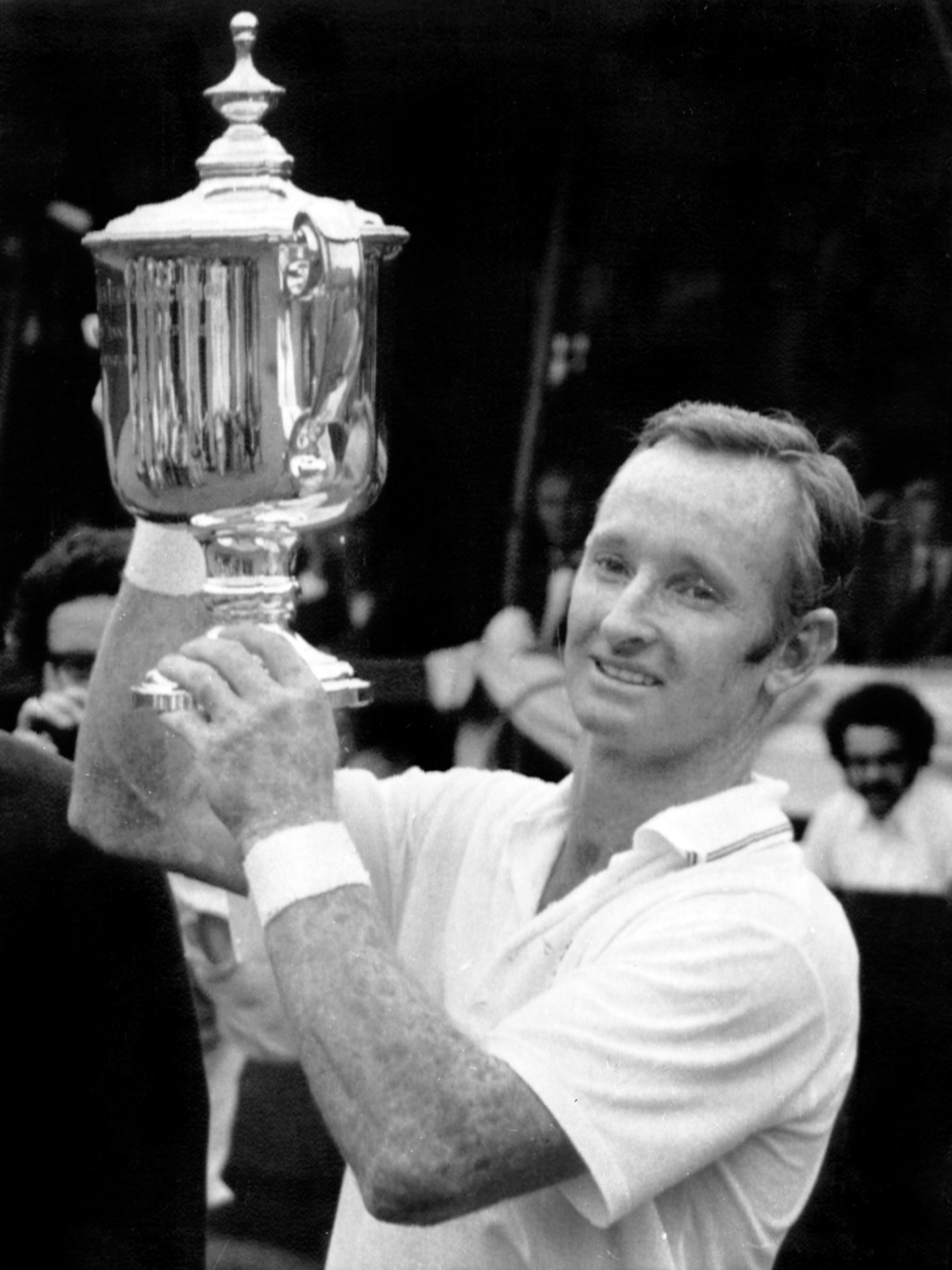
Rating Rod “the Rocket” Laver (b.1938 in Rockhampton, Australia) is tough as he was banned from playing in the four grand slams between 1963 (when he turned professional) and 1968 (the Open Era). Despite this, he still won 11 titles and remains the only male player to have achieved the Grand Slam (winning all four grand slam titles in the same year). He even did this twice: as an amateur in 1962 and then in 1969. Had those five missing years counted, 25 grand slam titles certainly seem possible.
So how did he do it? Laver wasn’t tall (173cm, 5’8”) but he was strong, quick, adaptable and, like Federer, could do everything: he could play a serve-and-volley game but, when necessary, stay back and rely on aggressive groundstrokes. Laver was before my time and the few clips of him in actionExternal link are underwhelming compared with today’s game, largely reflecting the role of more powerful rackets. That said, who am I to disagree with Federer, who in 2017 saidExternal link “Laver is the greatest player of all time”?
Rafael Nadal
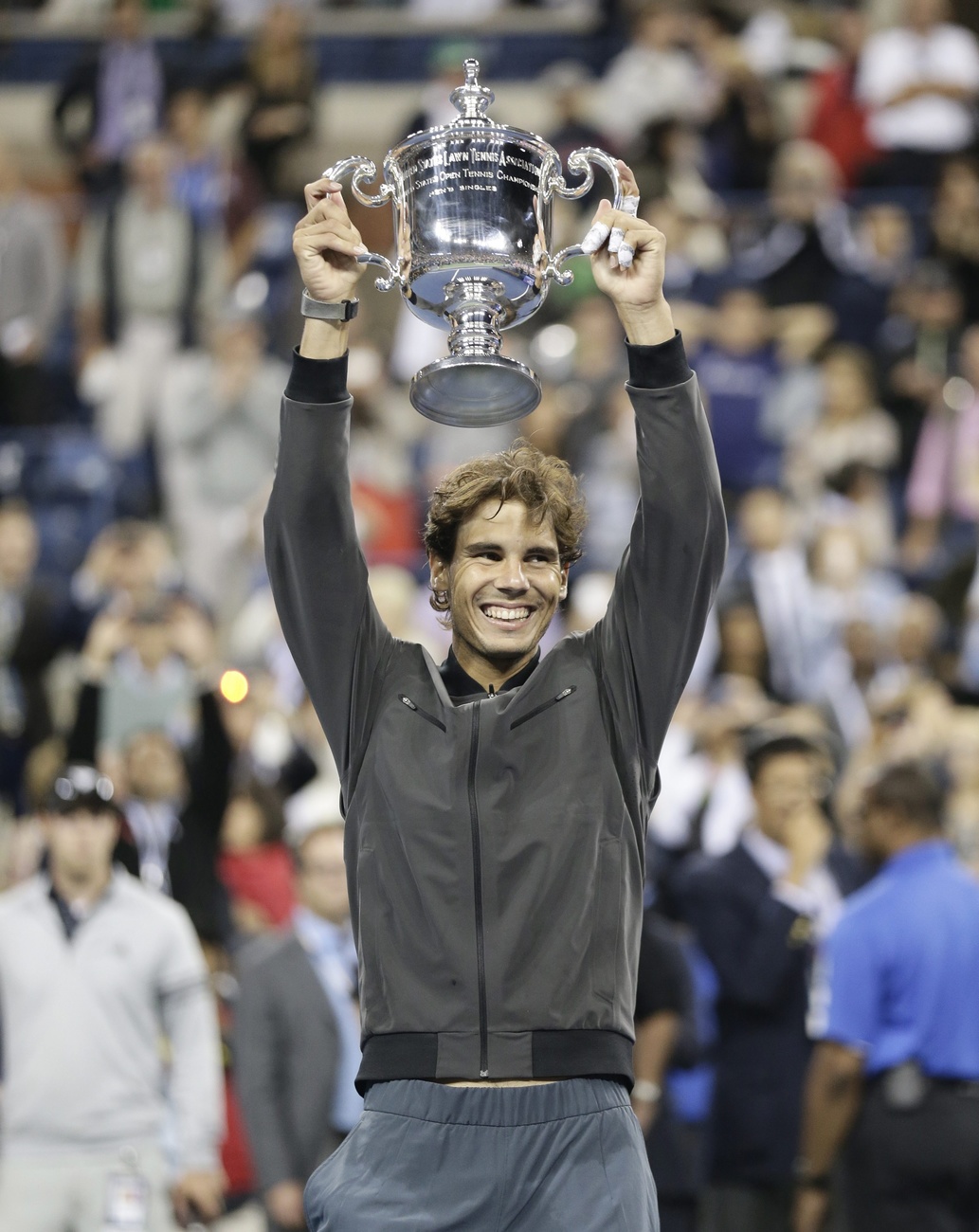
Nadal (b. 1986 in Manacor, Mallorca, Spain) shares the record of 20 grand slam singles titles with Federer and Djokovic, including an extraordinary 13 at Roland Garros, and most Masters titles with Djokovic (36). Nadal is without doubt the GOATOC (on clay), and it’s not even close. He has won 91.5% of matches he has ever played on the surface, leaving everyone else in the red dust. His 81-match winning streak on clay is far ahead of those for grass (65) and hard (56), both held by Federer. For many years he was in Federer’s shadow (he has spent a record 370 weeks – seven years – as world No.2), but he now has a better career match-winning record (83.2%) than Federer (82%) and is pipped only by Djokovic (83.3%). He’s not bad on other surfaces either, being one of only five men to have won all four majors (with Laver, Agassi, Federer and Djokovic).
True, he has never won the ATP Finals (Federer has done so six times; Djokovic, five), and some commentators have questioned his serve and his volleying, but his topspin-heavy groundstrokes and defensive skills – not to mention desire to win – make up for any perceived weaknesses. It may be power over beauty – his knees must be praying for his retirement – but it’s hard to deny it’s very impressive. For what it’s worth, he’s also gracious in defeat, not something one can always say about Federer. If I had to choose one player to play a match to save my life – and if I could choose the surface – it’s a no-brainer: Nadal on clay.
Right, over to you. Vote in this poll and argue your case in the debate!
*Puts on tin hat* Right, if you’d asked me ten years ago, I’d have said Federer, no question. He was unrivalled for grand slam titles, weeks at No 1 and he was coming up with shots that no one else could even dream of. Five years ago I’d still have said Federer, but I’d have admitted that the case for Nadal or, to a lesser extent, Djokovic was getting stronger. Today? I’m stubbornly going to stick with Federer over Djokovic, but I’m aware my arguments are largely emotional and based on aesthetics. In five years I’d be surprised if Djokovic hasn’t won several more titles and staked a solid claim to being the GOAT. But, frankly, until the Big Three have all retired, this question is moot.
Whoever you choose, hopefully we can agree that with Federer, Djokovic and Nadal we’ve been lucky enough to watch three exceptional talents entertain us for the past 15 years or so – and it’s not over yet.

In compliance with the JTI standards
More: SWI swissinfo.ch certified by the Journalism Trust Initiative

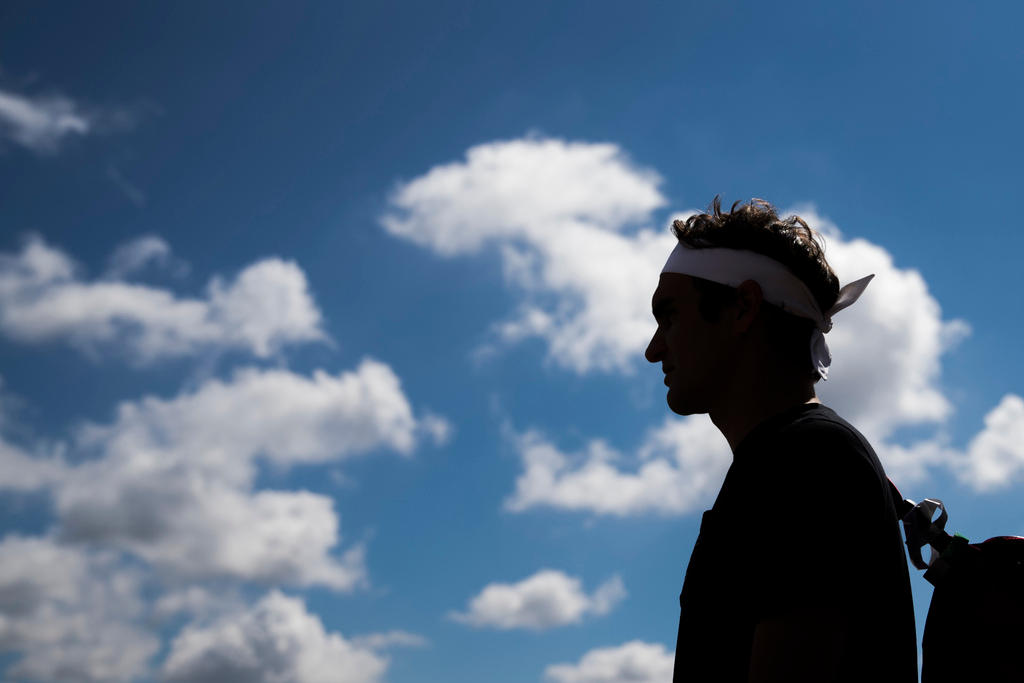
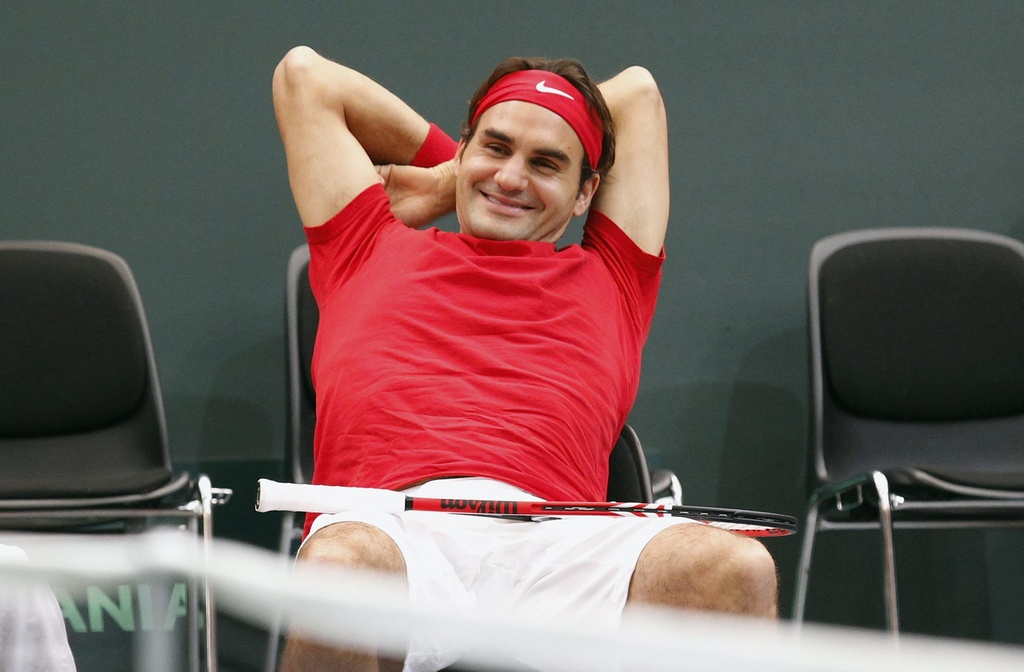

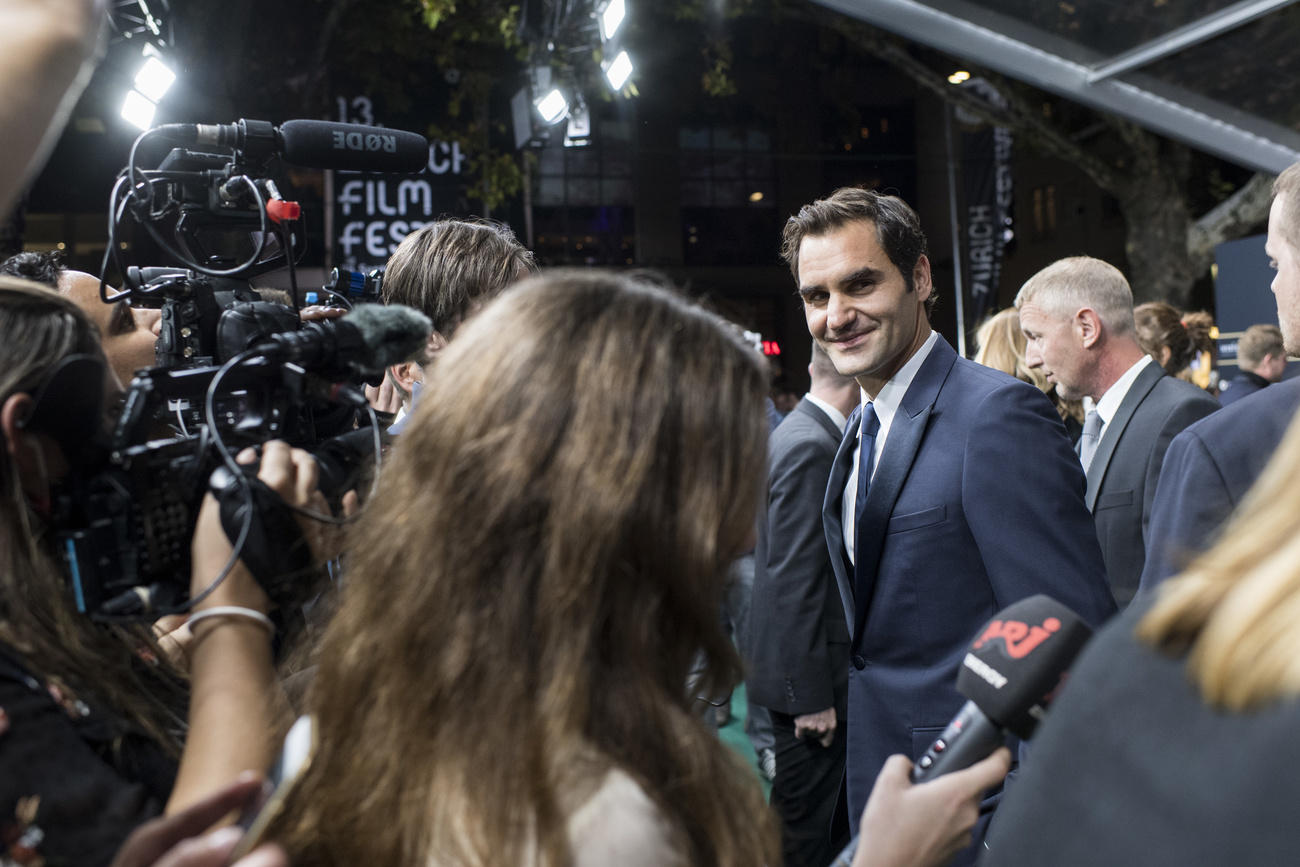
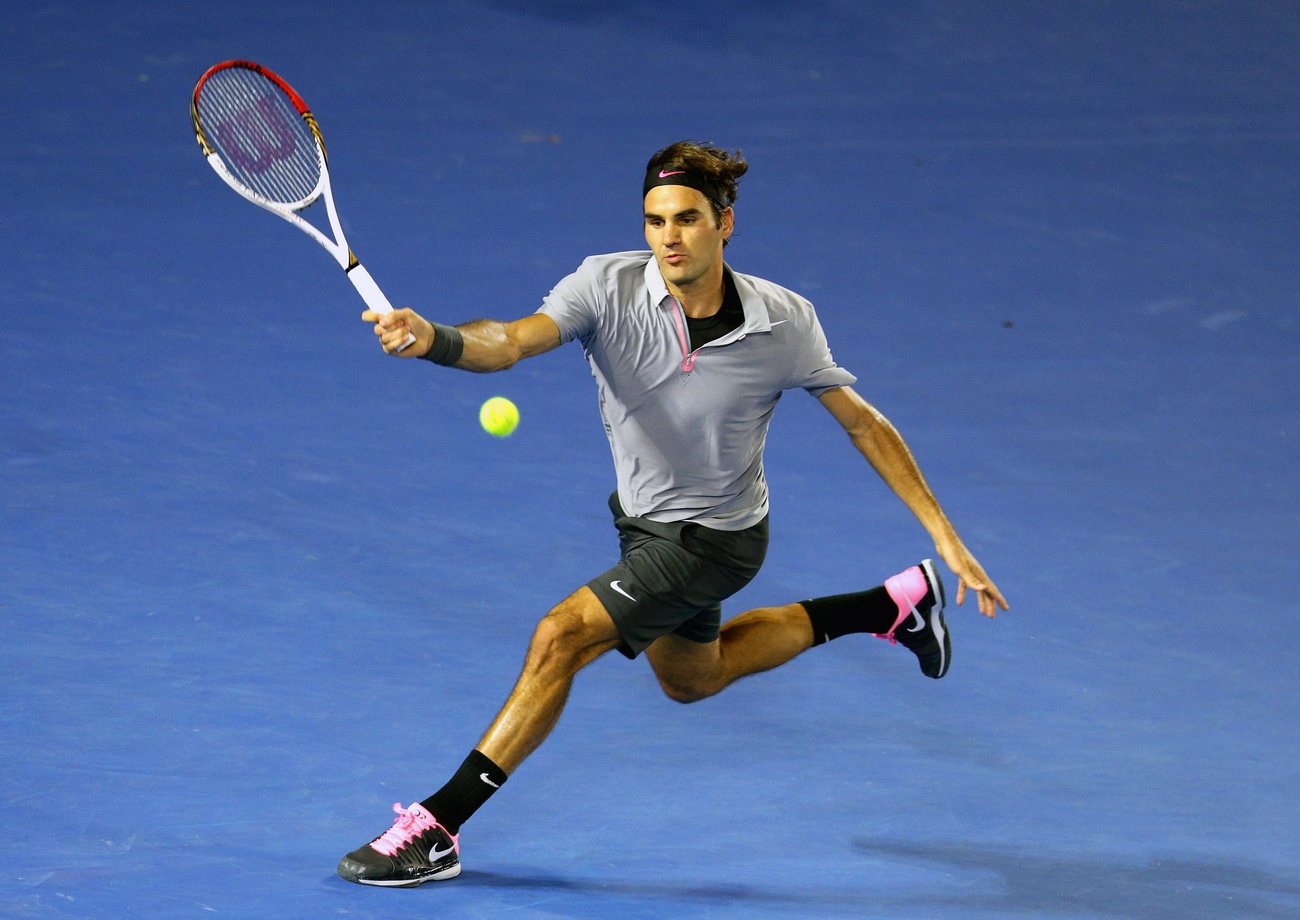
You can find an overview of ongoing debates with our journalists here. Please join us!
If you want to start a conversation about a topic raised in this article or want to report factual errors, email us at english@swissinfo.ch.